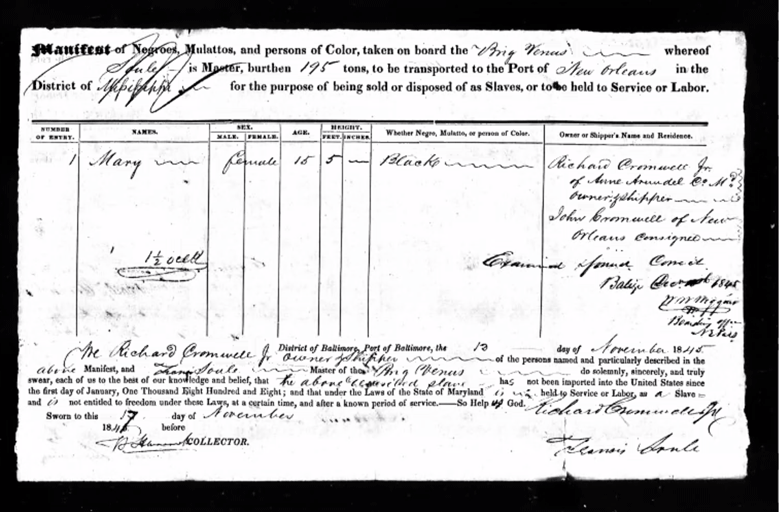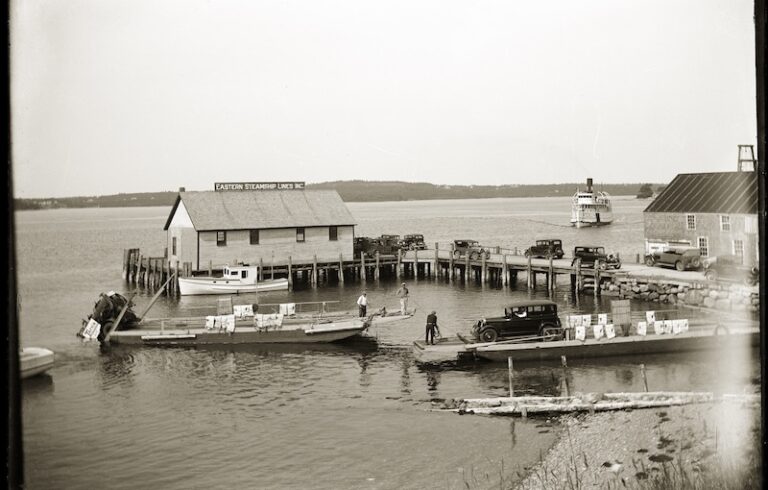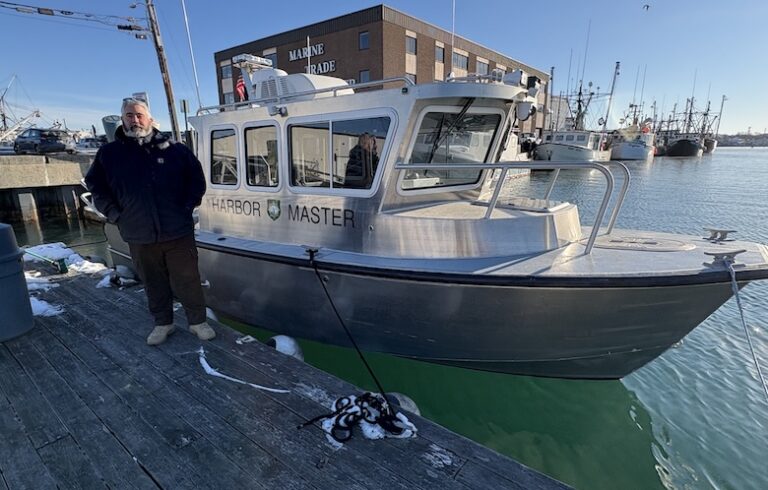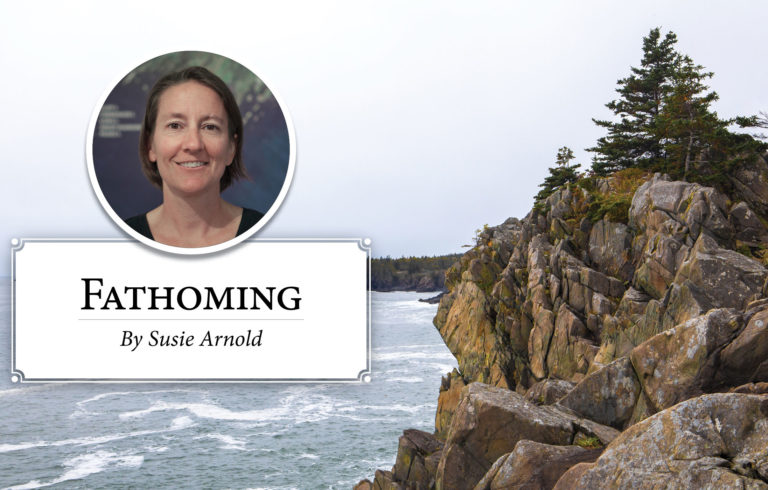
Maine has a proud history of seafaring captains who braved the open ocean in pursuit of trade and fish. Capt. Frederick Drinkwater is not one of them.
Drinkwater, according to research completed and presented by Kate McMahon of the Smithsonian National Museum of African American History and Culture, participated in the slave trade. McMahon shared her research in a Feb. 3 online presentation hosted by the Maine Conservation Voters group.
Drinkwater, born in Yarmouth, “was one of the most notorious slave ship captains of the 1850s and 1860s,” said MCV’s Kathleen Meil in introducing McMahon. What is especially shameful about Drinkwater’s story is that he—and many other Maine- and New England-based ship masters—engaged in the slave trade decades after the 1808 U.S. law making it illegal.
Only one Mainer, Nathaniel Gordon of Portland, was convicted under the law in 1861 and executed in 1862.
“Slavery touched nearly every continent on the planet,” McMahon said, “and it really was driven by waterways.”
The slave trade began in earnest in the late 1500s, she said, and by the time it ceased in the 1860s, there had been about 40,000 trans-Atlantic voyages dedicated to transporting enslaved people, mostly from West Africa. The voyage itself was the first threat—some 12.5 million left Africa as captives, but only 10 million landed on U.S. shores, a mortality rate of about 15%, McMahon said.
“By 1750, enslaved people were being brought to Maine,” she said.
Among the known ships built in Maine for the slave trade before it was banned include the Knutsford (1761) of Berwick, the Hereford (1770) of Sheepscot, and the Rising Sun (1772) of Biddeford. The last of these sank with all 241 captives perishing at sea.
Opposition to the horrors of slavery emerged as early as the late 1700s, with Rhode Island passing a law banning slave traders in 1787. Massachusetts did the same in 1788.
Some were prosecuted for violating the law, but the merchants continued “with ease,” McMahon said.
And yes, “Mainers were quite involved in this trade,” particularly in the 1840 to 1850s era, transporting enslaved people from the upper South to the lower South. Manifests for the Susan Soule and Venus, built and/or owned by Rufus Soule of Freeport, show a 15-year-old girl and one-year-old and six-year-old children among the “cargo.”
McMahon said while Great Britain banned the slave trade in 1807 and the U.S. followed in 1808, the law lacked teeth. The Act of 1820 asserted that participation in the African slave trade was now to be “considered the most heinous crime on the high seas,” equal to piracy, a crime carrying punishment by death.
“But it really didn’t suppress the American slave trade in any substantial way,” she said, and in fact, officials seemed to look the other way on this illicit activity.
Only one Mainer, Nathaniel Gordon of Portland, was convicted under the law in 1861 and executed in 1862.
Frederick Drinkwater, who served as a kind of case study in McMahon’s presentation, began his seafaring career captaining ships in the coastal trade between Portland and Boston. But by 1850, he was deeply involved in the slave trade.
Among his exploits, flouting the law, were trips to Liberia with a cargo of freed African-Americans, taking as many as 500 back to that continent “whether they wanted to go or not,” she said.

Drinkwater seems to have transported slaves to Havana, Cuba, and in 1857, he lived for part of the year there. One of the ways captains like Drinkwater escaped legal action was by disposing of ships used in the illegal trade or by renaming them, McMahon said.
“Frederick Drinkwater never suffered a single legal consequence,” she said.
The illegal slave trade fleet employed as many as 1,000 men. In the period from 1850 until 1865, some 20,866 enslaved people were transported in Maine vessels from Africa to Cuba, with an average of 647 per voyage.
A report in 1854 by the New York Times estimated the industry’s value at $11 million, or about $330 million today.
“Maine’s slave ship fleet was nearly four times more valuable than the timber industry” in the 1850s, she said.
McMahon is an advisor to the Atlantic Black Box Project, which works to unearth the region’s ties to slavery.
“I think it’s important for us to unpack this history,” she said.





